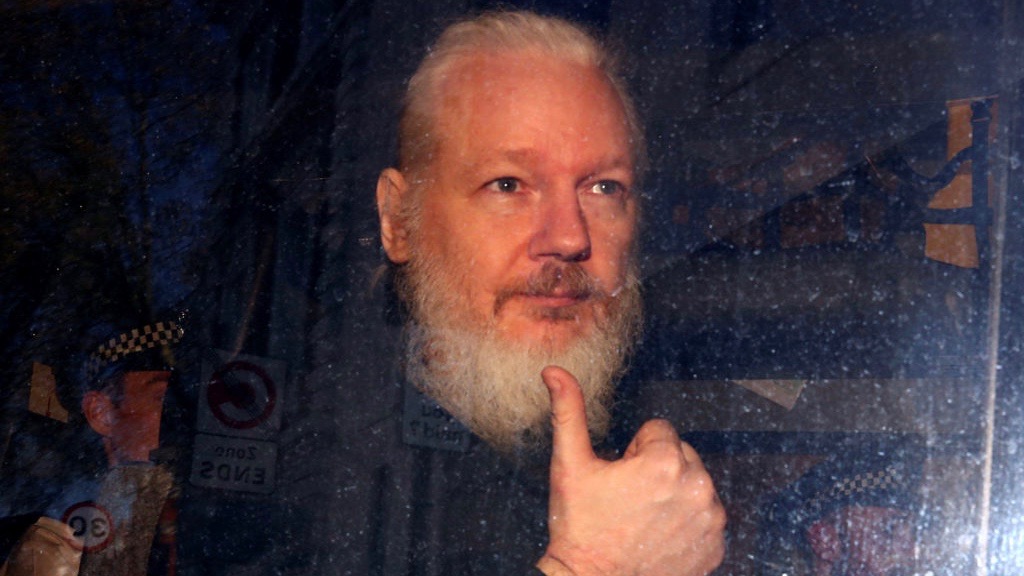In the past week, two members of the Australian parliament have called for the government to oppose any attempt at extraditing Australian citizen Julian Assange to the United States. They join former foreign affairs minister and ex-premier of New South Wales, Bob Carr, who raised concerns about the potential life imprisonment for Assange in May 2019.
On October 13, former deputy prime minister and senior member of parliament (MP) of the National Party, Barnaby Joyce, called for the government of Prime Minister Scott Morrison to intervene in the case of Assange. Morrison leads a conservative center-right coalition government of the Liberal Party and the National Party.
Joyce was almost immediately followed by Julian Hill, a backbench MP from Victoria, who belongs to Carr’s Labor Party. On October 14, Hill stated that Australia must be “vigorously consistent in opposing extradition to countries where he might face the death penalty”.
While Hill empathized with Assange’s situation in prison, Joyce made it categorically clear that his support for an intervention was based purely on the question of sovereignty of Australia and not a “character reference” for Assange.
Joyce said that he supports “the proper process of Australian law as applied to our citizens in our land in respect of our laws; it is the essence of sovereignty”, in reference to Assange. He further added that unless Assange is prosecuted, according to the law of the land, for the alleged “crimes” he committed while in the US, which he was not, it is not fair for the US to demand extradition.
Federal prosecutors representing the US Department of Justice have charged Assange under 18 counts of federal crimes under the controversial Espionage Act that carry a potential prison sentence of 175 years in total.
Assange is currently serving a 50-week prison sentence at a high security prison in Belmarsh in the United Kingdom after being convicted of jumping bail by taking asylum in the Ecuadorian embassy in London for close to seven years. He is also facing trial for the extradition request from US federal prosecutors, in the UK.
When Assange secured asylum from the Ecuadorian government through their embassy in London, Bob Carr was the Australian foreign affairs minister in the then minority Labor government. He had then refused to intervene on behalf of Assange, who was then being prosecuted for a sexual harassment case from Sweden, which Assange feared was an attempt to have him extradited to the US.
Carr, in June 2013, stated that there was little evidence to suggest that he would be extradited to the US, and even went to the extent of saying that his case “doesn’t affect Australian interest”. Almost six years later as the Swedish sexual harassment case has reached a deadlock, Assange’s health deteriorates in prison, and the US made its intention of jailing Assange over Wikileaks very clear. This panorama seems to have pushed Carr and many others in the Australian political mainstream to alter their view.
Carr stated that the possibility of 175 years of imprisonment to have changed “the game almost as much as if capital punishment were the penalty.” Carr further added in his statement that Assange’s case needs to be opposed on the ground that the extradition treaty between Australia and the US prevents any kind of extradition on “political” charges. He went on to state that Australians “have an absolute right to know about American war crimes in a conflict that the Australian government of the day strongly supported”, noting that Assange was crucial in exposing those crimes.
Assange’s family and close associates have long advocated for his release and return to Australia. Assange’s father, John Shipton, had requested, shortly after his arrest by the London Metropolitan Police in April, for Assange to returned to Australia. The fact that this sentiment is taken seriously now by mainstream politicians may be an indicator of the direction that public opinion in going for.
Regardless of the growing support, the government seem very noncommittal in taking a stand. According to Guardian among the talking points that were accidentally leaked to journalists on Monday, the Morrison government had taken to sticking to the statement that read: “the Australian government cannot interfere in the United Kingdom’s legal processes, just as another country cannot interfere in ours.”
Earlier today in an interview with the Sydney-based radio station 2SM, Morrison responded in a hostile tone when asked if he would try to intervene in Assange’s legal process, stating, “My personal opinion is that the legal processes should run their course and he should face the music.”





